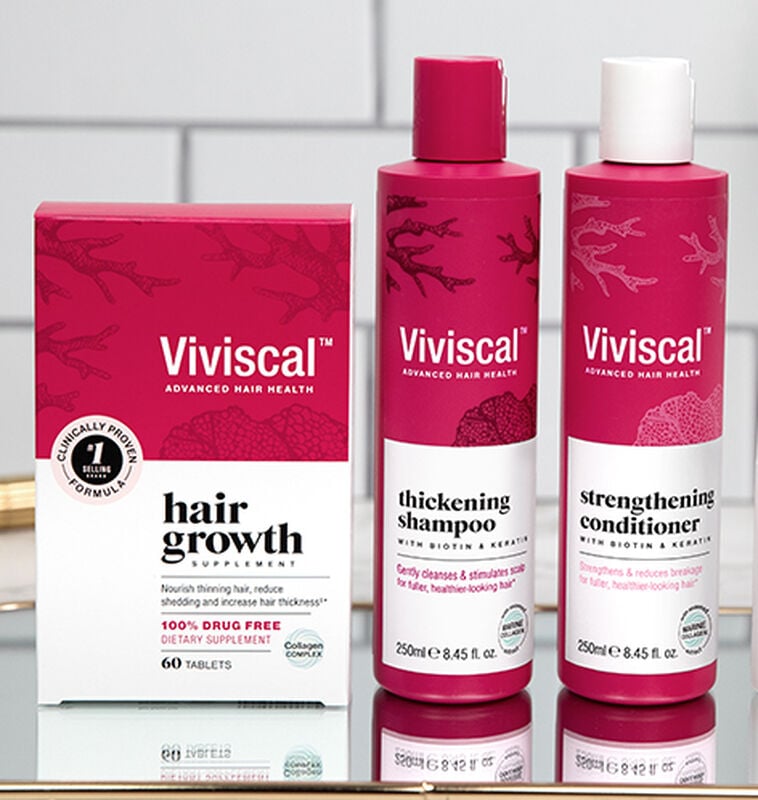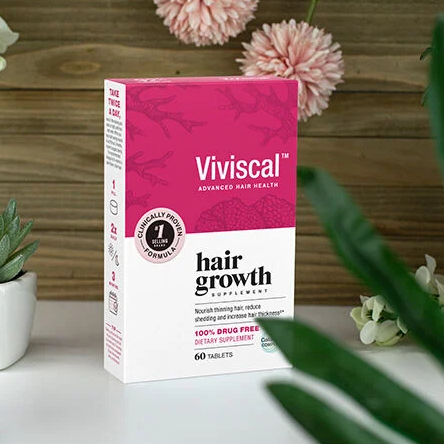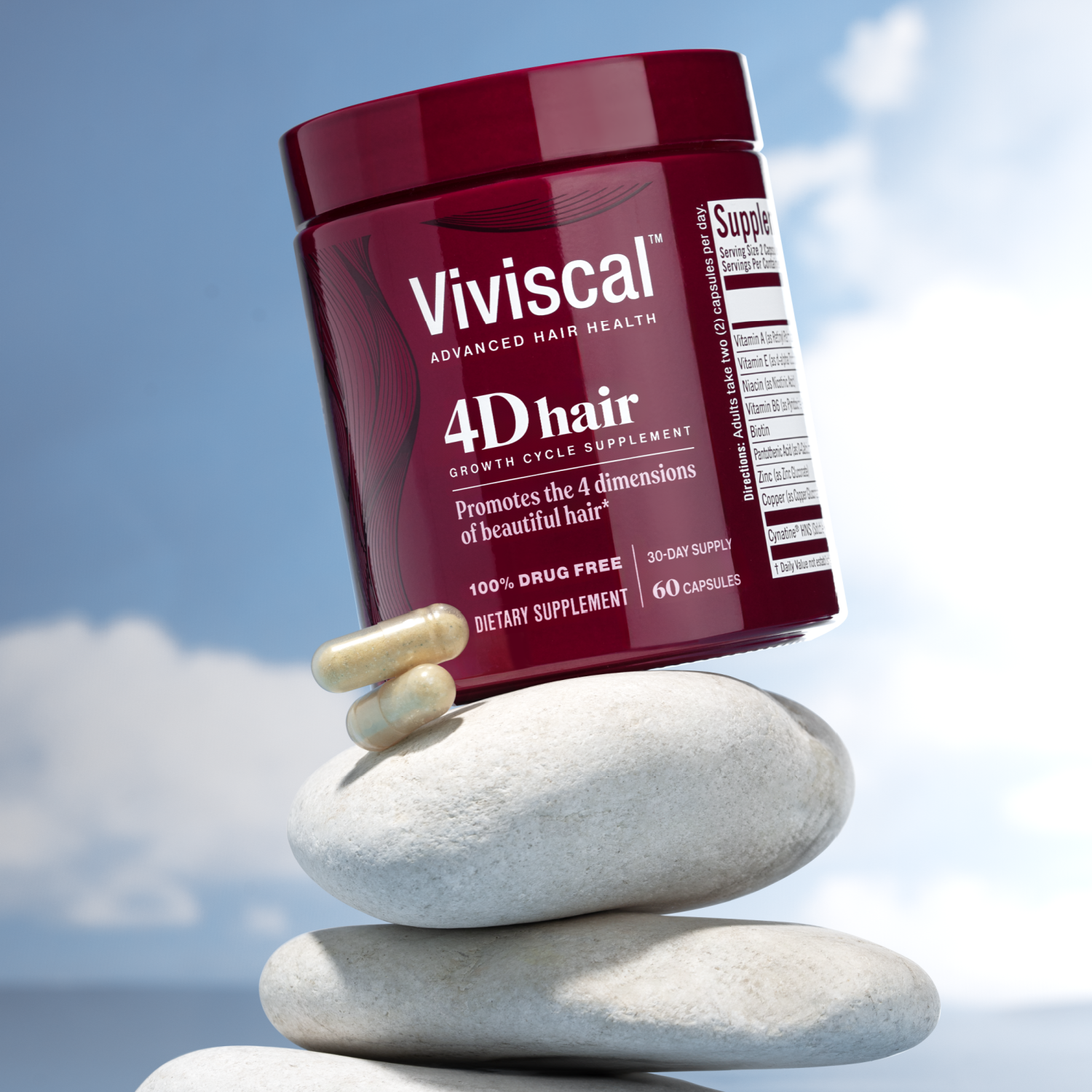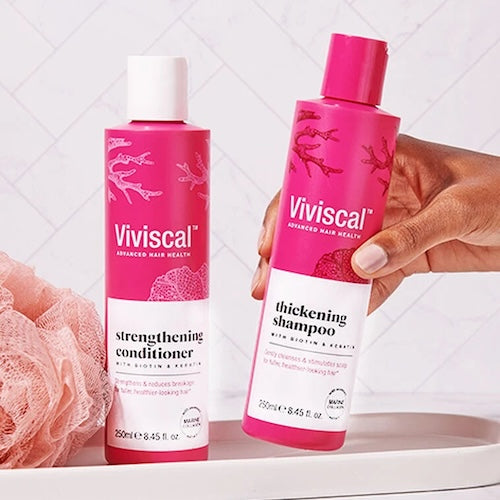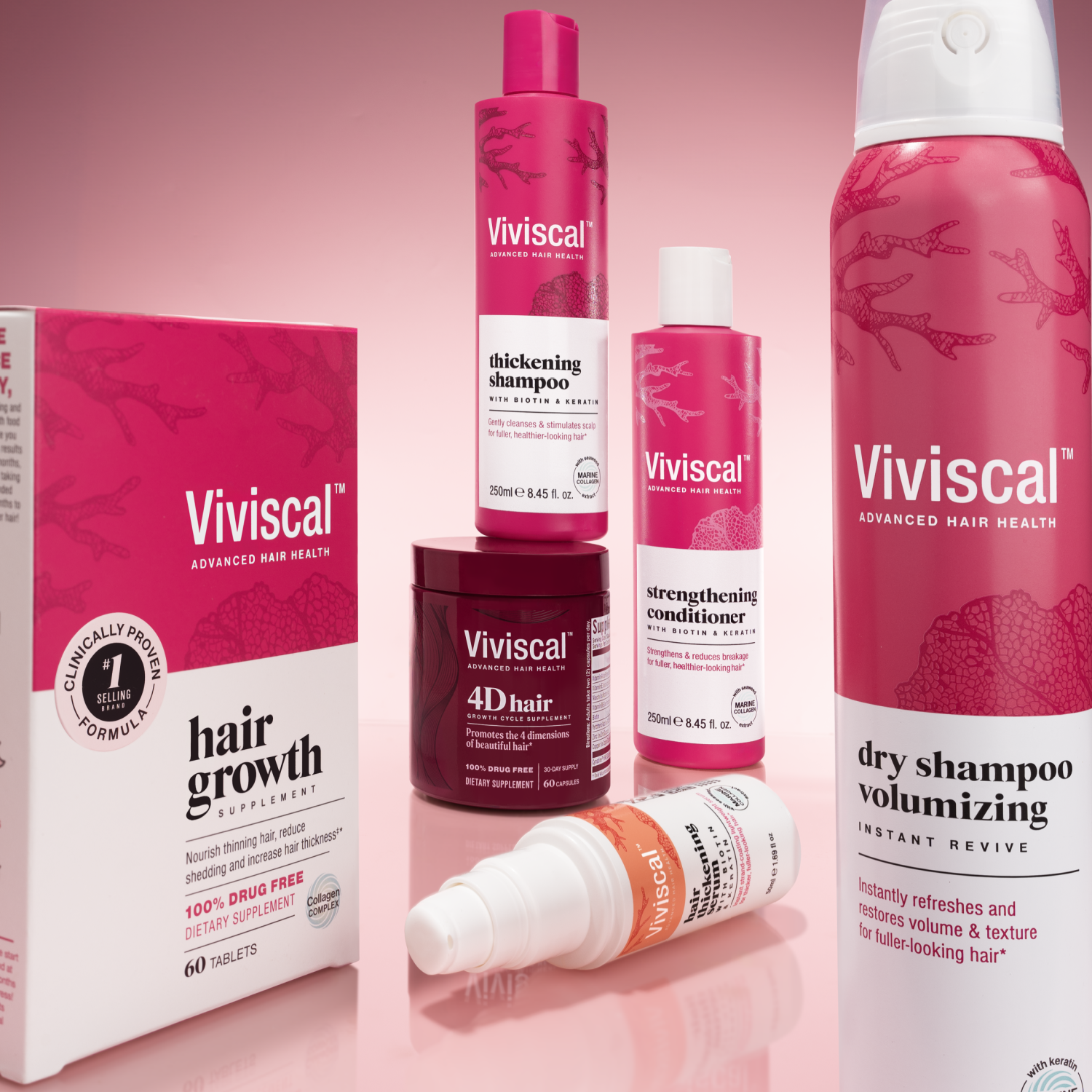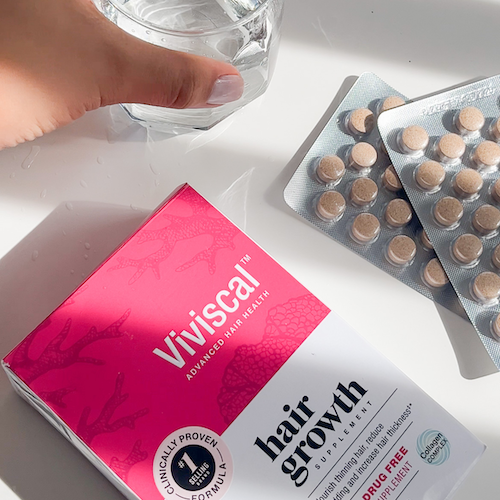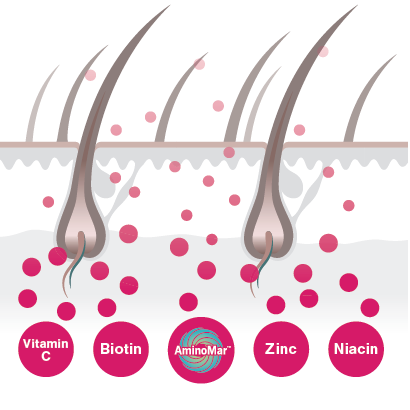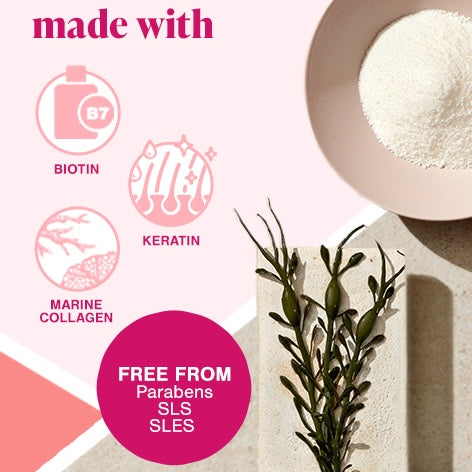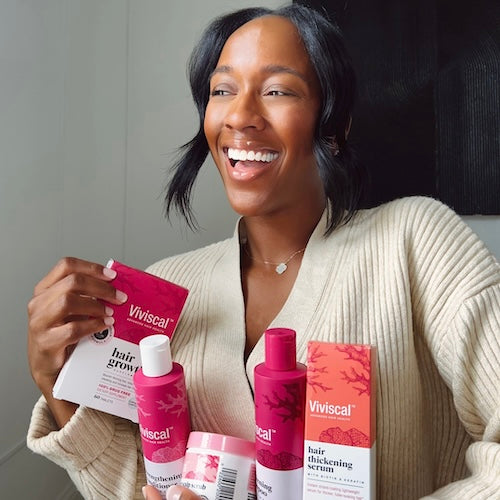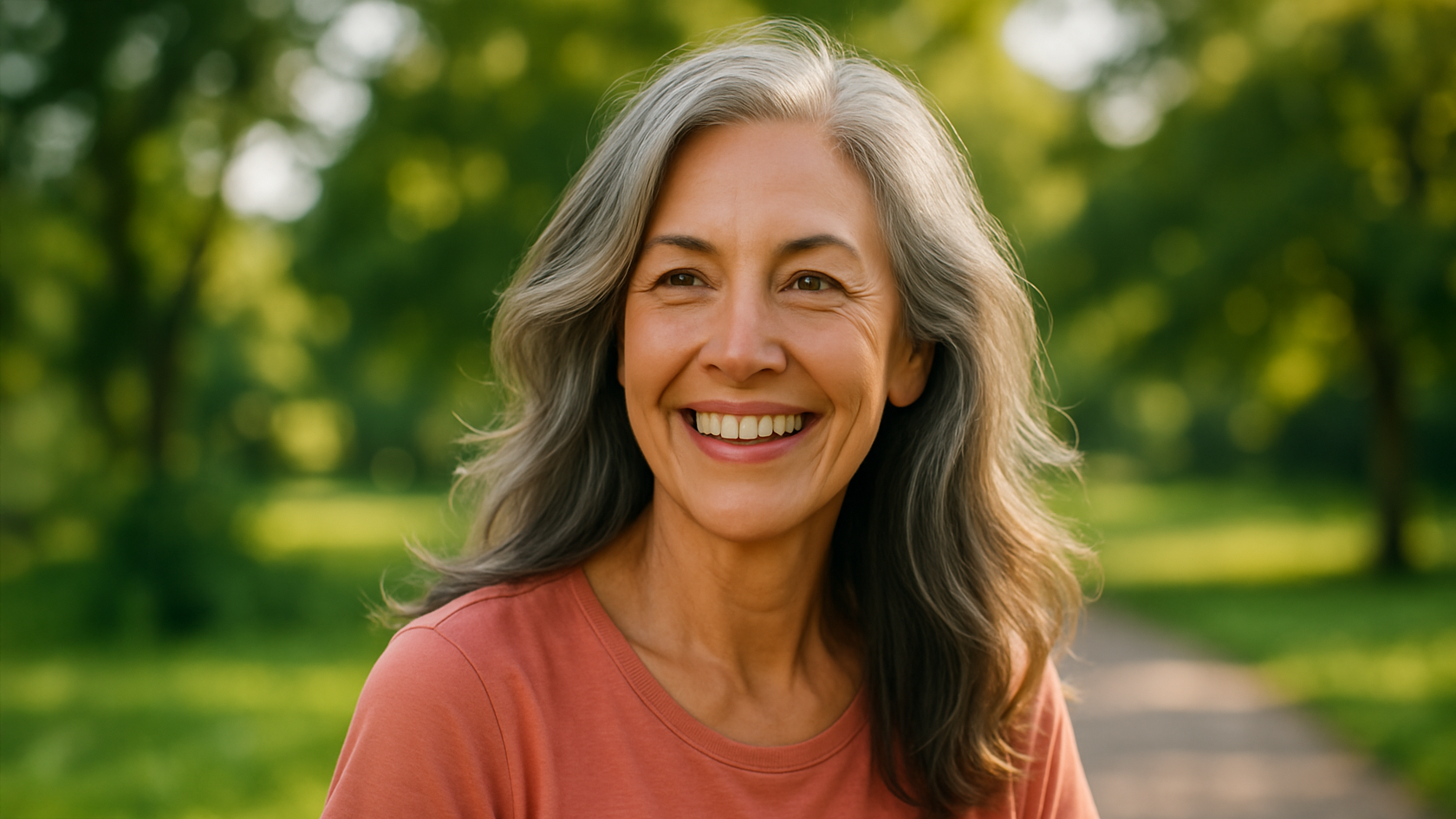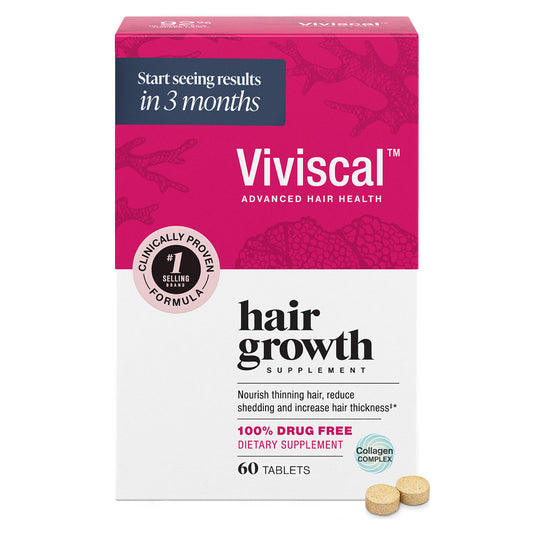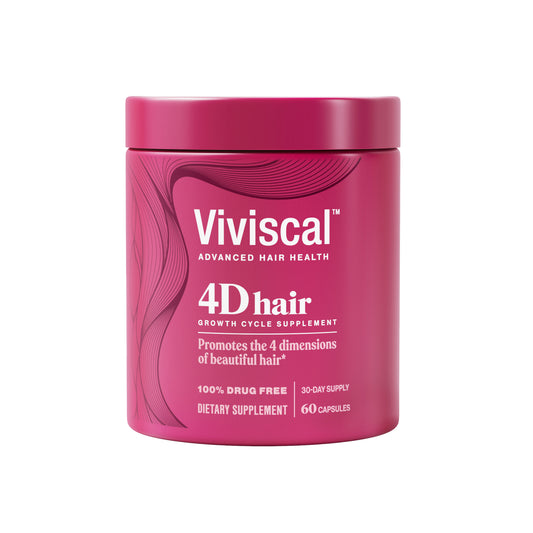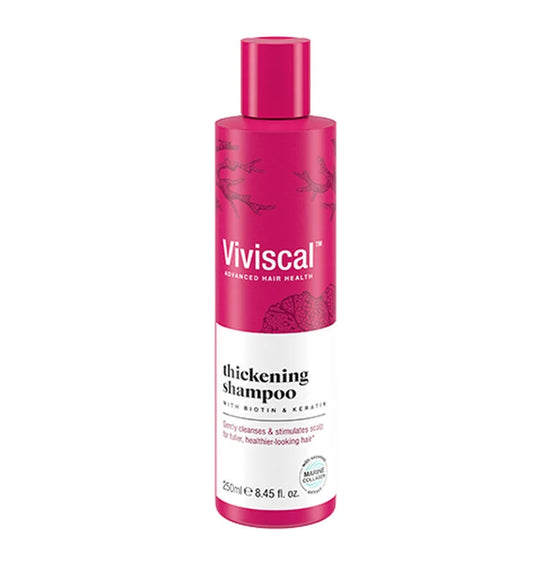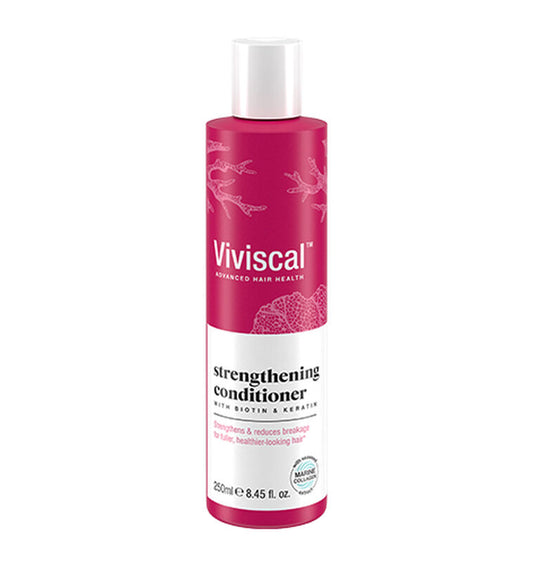Hot flashes, poor sleep, brain fog, creeping weight gain. You may have heard of some of these impacts of menopause on your body. But what about your hair? What happens to your hair during menopause?
While menopause can be a large part of several years for many women, the transition from having a regular period to no longer menstruating can vary greatly from woman to woman. Some women may experience minor changes, while others may experience intense changes to their body. Your experience will be uniquely yours!
Menopause 101:
Menopause lasts several years of a woman’s life, with three distinct phases: perimenopause, menopause, and post-menopause. During the transition, estrogen and progesterone, two hormones that your body produces, gradually decline. Your body goes through the transitions from regularly menstruating to no longer menstruating. In general, most women experience the menopause transition between 45 and 55 years of age. Menopause itself is neither a disease nor a disorder; instead, it is part of normal aging for women.
The Phases of Menopause:
Perimenopause:
Perimenopause is the starting phase of the menopause transition. It can last anywhere from 2–8 years. It generally shows up as changes to your menstrual cycle, with your cycle length and intensity changing from its regular patterns.
Menopause:
Menopause is the point at which you haven’t had a period in 12 months; and true menopause is usually confirmed one year after the final menstrual period. The average age of menopause is 52 years old in the U.S.
Post-menopause:
Post-menopausal women are those that have completed menopause. This is a new chapter of your life! You won’t have a period anymore, but you may experience some new health conditions.
Now, what happens to your hair during menopause?
When aging, some women find increased hair shedding, hair thinning, hair (and scalp) dryness, or hair being more prone to breakage. Not everyone’s hair is specifically impacted during menopause, but for some women, the changes in their hair can be noticeable.
Menopause and Hair Changes
Hair shedding:
For some women, they will find increased hair shedding during perimenopause. While it’s normal to shed some hair every day, you may find an increase in hair shedding during this transition.
Hair thinning:
The diameter of women’s hair may start to become thinner in your 40s, and the hormonal shifts of menopause may lead to hair thinning.
Hair/scalp dryness:
When aging and going through menopause, we tend to have drier skin. This skin includes your scalp – the skin on your head. This dryness can be from several factors. Your sebum levels decrease during perimenopause. Additionally, collagen production is reduced, which can also impact your hair and scalp.
Hair breakage:
Thinner and drier hair can also lead to an increase in hair breakage.
If you are noticing changes to your hair that concern you, you should connect with your healthcare professional or a dermatologist to see if there are any issues.
How can you help your hair during menopause?
There is a lot you can do to help your hair during menopause: find ways to cope with stress; eat nutritious foods to provide needed nutrients for your hair (and scalp!); and follow the hair care needs of your hair now.
You may notice while going through perimenopause and menopause that your hair acts differently from the past. It can change texture, how it takes a curl or how it responds to products. Since your hair may be different now, you may need to change which hair products you use and how you treat your hair.
What can I do to help my menopausal hair?
1. Manage Stress
Perimenopause and menopause often hit women at a time of stress in their lives between raising kids, taking care of aging parents, and managing intensive job demands. Stress can have a profound impact on our hair and may cause increased hair shedding. Working on ways to manage how you respond to stress can be helpful. While you may not be able to remove stress from your life entirely, here are ideas on ways to help manage stress:
- Exercise: With its many different benefits for our bodies, taking part in regular exercise can have a very helpful impact on how stress is felt in our bodies.
- Relaxation: Yoga, tai chi or meditation – there are different techniques you can learn to help calm the body and externalize stress. If one practice doesn’t work for you, try another type!
- Get outside: Gardening, walking with friends, or even just visiting a lakefront to watch the waves - all these activities can help reduce the stress that you are feeling.
- Pet therapy: For many people, playing with a pet can have a very positive effect on their stress levels. It doesn’t even have to be your own pet, perhaps a friend’s or neighbor’s. There are even coffee shops where you can hang out with cats or bunnies while you enjoy your drink.
2. Focus on Nutrition
The quality of what you eat becomes even more important as you go through menopause. For women going through menopause, it’s critical to focus on nutrient-dense foods. Nutrient-dense foods are naturally high in a variety of vitamins, minerals, dietary fibers and proteins – the essential nutrients that your body needs every day.
Your protein needs increase during menopause, so consuming protein-enriched foods like lean meats, yogurt, nuts, beans and seeds can all help you fulfill your protein needs. Fresh fruits and vegetables, whole grains and beans can make it easy to get the vitamins, minerals, and fiber you need. Your hair follicles depend on these nutrients to grow your hair, so by nourishing your body you are also nourishing your hair.
3. Consider supplements:

As you age, you may also want to consider adding a dietary supplement. Viviscal Hair Growth supplement taken twice a day for 3 months is shown to nourish thinning hair, reduce hair shedding and increase hair thickness.*
Only Viviscal Hair Growth supplements include the AminoMar™ collagen complex. Viviscal™ has over 30 years of hair growth expertise.
4. Be gentle with your hair:
As you age, you may want to give your hair special care. Try using a satin or silk pillowcase on your pillow, as the smooth fabric of these materials helps to not pull on your hair while you sleep. Use lukewarm water to wash and rinse hair, gently massage hair and scalp while shampooing, and then nourish your hair with a lightweight hair conditioner.
When drying your hair, use a soft towel to first squeeze out excess water; if needed, follow with only gentle heat to dry your hair, and then finish with a soft towel again. Viviscal™ also offers hair care products that assist in proper hair care.
As always, if you are having any issues or concerns about your health, contact your healthcare professional.
Every body is different:
Every woman has her own unique aging experience. You may experience some body changes during the menopausal years, or you may coast through with no changes. Some women experience menopause with increased hair shedding or other changes to their hair.
There are ways to reduce the impact of menopause on your hair, including managing stress, eating a nourishing diet, being gentle on your hair, as well as considering a hair growth supplement like Viviscal Hair Growth supplements.
Brought to you by the Viviscal™ hair experts.
*These statements have not been evaluated by the Food and Drug Administration. This product is not intended to diagnose, treat, cure or prevent any disease.
